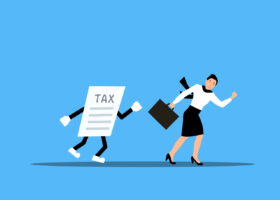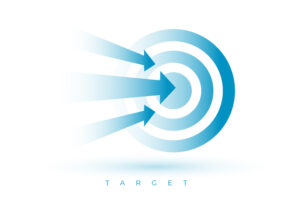5-Minute Read
“Minimalism isn’t about removing things you love. It’s about removing the things that distract you from the things you love.” – Joshua Becker
Recently a devasting winter storm passed through the country. Here in Texas the impact was widespread and reported heavily in the national news. For days, along with many others I was learning to live with less: Less power, less heat, less internet, less work.
It wasn’t all bad. I did have more time to spend with family, think and read. Extreme situations aside, can less actually be more as a way of life? While I don’t call myself a minimalist, perhaps I’m an aspiring one. Is there something holding you back personally, professionally, or financially? This piece explores how minimalism even in just a small dose could be the cure.
Minimalism and its Roots
I first came across the term several years ago when Minimalism: A Documentary About the Important Things was released on Netflix. The creators, Joshua Fields Millburn and Ryan Nicodemus subsequently released a follow-up last year: The Minimalists: Less is Now.
They define minimalism loosely as follows:
Minimalism is a lifestyle that helps people question what things add value to their lives. By clearing the clutter from life’s path, we can all make room for the most important aspects of life: health, relationships, passion, growth, and contribution.
Does this sound like an unusual lifestyle? If so, maybe the status quo needs to shift. There’s an underlying discontent in society that cannot be solved by accumulating more things. In fact, more things may even be contributing to the problem.
The root causes of why we continually strive to accumulate more are complex. There’s an evolutionary component that may make us “wired” for dissatisfaction. Gathering in the past directly increased chances of survival. In today’s world, it may be less about survival and more about fulfilling deeper needs.
Do you own your desires or are they manipulated by outside forces? In our consumer culture, advertising and marketing play a sizable role. We are continually made to believe that we need more things to fill the void or keep up with the latest trend. Furthermore, products are getting cheaper and more readily available with 1-click purchasing and next day shipping. Compulsory spending has never been easier.
Then there is our constant connectivity with social media. We no longer compare ourselves only to our colleagues and neighbors. We now have instant access to the daily lives of celebrities on Twitter and Instagram. For some, this could be harmless fun. But it can become dangerous if our perceptions get too skewed. Are we focusing on the life we think we deserve to have or the life that is genuinely the most fulfilling?
For a Minimalist, One Size Does Not Fit All
Being a minimalist does not need to look like anything specific. If you watch the before mentioned documentaries, you’ll see examples of people living in small homes or no homes at all (out of a backpack).
We should not necessarily equate minimalism with sacrifice. This is about designing a life plan that works for uniquely for you. Do you agree, even partially, with the following statements?
- A life with less “stuff” means LESS stress, worry and debt.
- A life with less “stuff” also means MORE time, energy, contentment, and peace of mind.
Thinking like a minimalist can help unlock a meaningful life. Here are some questions worth asking yourself about the things you let into your life.
- Does every possession I have serve a purpose and bring me joy?
- Does this possession add value to my life? If not, can I let it go?
- Where is there clutter in my life? This doesn’t have to be physical stuff. Mental and spiritual clutter can be just as impactful to remove.
- How can I pursue more quality over quantity?
Minimalism and Financial Independence
If a minimalist approach, however you define that for yourself, results in a lifestyle where you spend less money, financial benefits naturally follow. Here’s a brief look at the dynamics.
Spending less is the most robust way to achieve financial independence. How much less depends on how soon you want to be financially independent.
Why not just earn more? That helps, but over time you have more control over spending less than you do earning more. Continue to work and study hard. Just remember that despite the effort you put in, there will always be an element of luck to what you can sustainably earn through your wages or businesses. Look no further than the economic impact of this pandemic.
If you spend less, you increase your savings rate. Your savings rate determines how fast you accumulate assets. There are other factors that help accumulation like good investment decisions. But investment returns are not completely in your control. Your savings behavior is the foundation.
If you spend less, you reduce your future withdrawal rate. All else equal, a lower future withdrawal rate from your assets allows you to reach financial independence earlier and sustain it. One corollary: Spending less can also decrease your future tax obligations, which can further decrease your withdrawal rate. Call it a virtuous cycle.
Minimalist Baby Steps
Ok, I will let you off the hook. You do NOT need to give up your stuff to benefit from the upside of a minimalist approach. The physical things that are not the problem per se, but rather it’s your attachment to those things.
This blog is more about why to minimalize, not how. For how-to tips, you could check out The Minimalists, Mr. Money Mustache or just start learning about the FIRE (Financial Independence, Retire Early) movement.
If I can share one piece of advice to get started, it is this. A powerful observation came from Morgan Housel in his book The Psychology of Money. He wrote, “The hardest financial skill is getting the goalpost to stop moving.”
It can be troublesome if your expectations continue to rise with results (more money, more income, etc.). If you don’t have a clear idea of what is truly enough, then for every step forward you make, the goalpost moves two steps ahead.
Suppose you’re used to a certain lifestyle now and would prefer that not to change. Even if you agree with a minimalist approach, I acknowledge it can be difficult to cut back.
It is often easier to commit now to saving more in the future. From behavioral finance, this is the Save More Tomorrow approach. If future pay raises are saved and not spent, that’s another way to increase your savings rate. It will also stop the metaphorical goalpost from moving.
Run (or Walk) Your Own Race
Many years ago, I visited the home of a successful doctor who built a thriving practice. I was admiring his home and then complemented him on its beauty. I’ll never forget his response: “Oh, this is nothing. You should see the home across the street.”
I left the doctor’s home wondering if always striving for bigger and better was the best path to success. Fast forward to today, and I find that a different mindset is healthier. Define success for yourself, authentically on your own terms. Otherwise, you might wonder how you ended up on an endless treadmill.
None of this means you should become a minimalist. Minimalism (or even approaching it) may not resonate with everyone. I believe there are aspects of it that can benefit anyone with an open mind. Take what is useful and discard the rest.
If you have comments or questions on this piece, please drop me a line at: [email protected]
References
- https://www.netflix.com/title/80114460
- https://www.netflix.com/title/81074662
- https://www.theminimalists.com/start/
- https://www.mrmoneymustache.com/
- https://en.wikipedia.org/wiki/FIRE_movement
- https://www.amazon.com/Psychology-Money-Timeless-lessons-happiness/dp/0857197681
- https://www.kitces.com/blog/why-planning-to-save-more-tomorrow-and-not-today-may-be-a-better-approach/
The information on this site is provided “AS IS” and without warranties of any kind either express or implied. To the fullest extent permissible pursuant to applicable laws, Krishna Wealth Planning LLC (referred to as “KWP”) disclaims all warranties, express or implied, including, but not limited to, implied warranties of merchantability, non-infringement, and suitability for a particular purpose.
KWP does not warrant that the information will be free from error. None of the information provided on this website is intended as investment, tax, accounting or legal advice, as an offer or solicitation of an offer to buy or sell, or as an endorsement of any company, security, fund, or other securities or non-securities offering. The information should not be relied upon for purposes of transacting securities or other investments. Your use of the information is at your sole risk. Under no circumstances shall KWP be liable for any direct, indirect, special or consequential damages that result from the use of, or the inability to use, the materials in this site, even if KWP or a KWP authorized representative has been advised of the possibility of such damages.
In no event shall KWP have any liability to you for damages, losses, and causes of action for accessing this site. Information on this website should not be considered a solicitation to buy, an offer to sell, or a recommendation of any security in any jurisdiction where such offer, solicitation, or recommendation would be unlawful or unauthorized.





